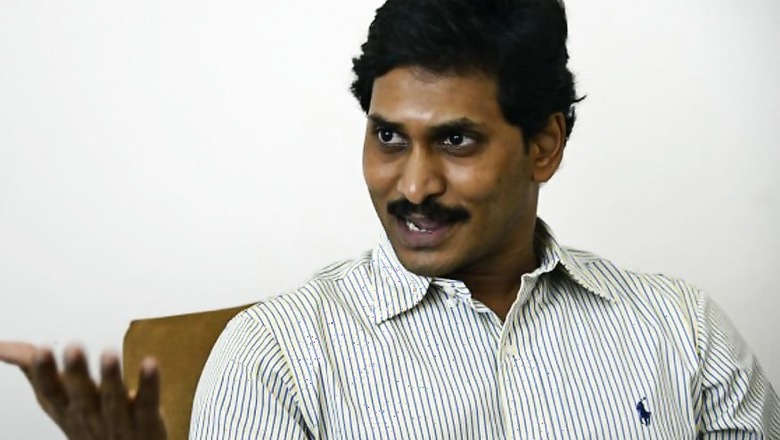
views
Hyderabad: Stepping up the ante against the Centre, the YSR Congress Party has decided to move a no-confidence motion against the NDA government in Parliament on Friday. Party president Jaganmohan Reddy has written to all parties seeking their support in seeking special status for Andhra Pradesh.
Speaking to News18, YSRCP MP Vijay Sai Reddy said, “Lok Sabha MP YV Subba Reddy will move the no-confidence motion in the House on Friday. Our party leadership is seeking support from other parties.”
He further added, “The Finance Bill was passed in Lok Sabha without any discussion. Now, it’s in Rajya Sabha and it will be passed there in the same way. It is likely the House will be adjourned sine-die. Therefore, we are moving the no-confidence on Friday itself.”
With the BJP government enjoying absolute majority in Lok Sabha, the central government is under no threat of collapsing. The YSRCP, therefore, is taking on the matter as the public is associating the matter with Telugu pride and the issue is a hot election topic.
As the main opposition party in Andhra Pradesh, moving a no-confidence will give an upper hand to YSR Congress Party, leaving other political parties like TDP and Congress in the dock.
The ruling TDP had earlier termed the move a ‘drama’ and alleged that the YSRCP was attempting to break the BJP-TDP alliance for its own benefit.
Questioning the move, TDP sources said, “YSR Congress has said that they have confidence in Narendra Modi. Their MP, Vijay Sai Reddy, said they have a lot of confidence in Modi. Then, where is the sanctity in their no-confidence motion against the government?”
The source said that the TDP was fighting with the Centre as per people’s sentiments. “Our MPs have been strongly fighting both inside and outside Parliament. We even withdrew our ministers. We will continue our fight until we achieve our rights. We will act according to people’s sentiments and not according to agenda of prime accused in corruption cases.”
The TRS, which extended its support to withdrawing Andhra MPs, has hinted that they will not support the motion.
Congress president Rahul Gandhi has already voiced his concern over the Special Status issue but will the Grand Old Party support the motion in order to regain lost ground in the state?
Will other political parties like TMC, CPI(M) and Shiv Sena unite for the sake of Andhra Pradesh?
WHAT IS NO-CONFIDENCE MOTION?
A motion of no-confidence is a statement or a vote declaring that a person or group in a position of power is deemed no longer fit to hold that position. The vote is carried out if the person or group has failed to carry out obligations or are making decisions that other members feel are detrimental. As a parliamentary motion, it demonstrates to the head of the state that the elected parliament no longer has confidence in the appointed government.
The Lok Sabha, till date, has witnessed 26 no-confidence motions. The first was moved in 1963, against the Jawaharlal Nehru-led government by socialist Acharya Kriplani. The most famous of the lot was in 1999 when the Atal Bihari Vajpayee-led NDA government had to resign after the government lost the vote of confidence by a single vote.
SHOULD BJP WORRY?
Political analysts argue that the success of a vote of confidence should not be measured merely by the motion’s defeat, rather how it plays out as a strategy. No-confidence motions have been moved in the past while debating an issue, while it did not defeat the regime, it did expose the government’s stance.
This particular vote is going to play out at a time when many states are going to polls and the general elections just a year away. The motion will work to draw political battle lines and help up the ante against the ruling BJP government.
A no-confidence motion is an accepted and legitimate political strategy used by parties to mount pressure on the government, get focus on the issue and mobilise public opinion.
The no-confidence motion will facilitate discussion on the implementation of the AP Reorganisation Act of 2014.
If the numbers match up, it will be an opportunity to bring the regional issue to be debated at a national level.















Comments
0 comment